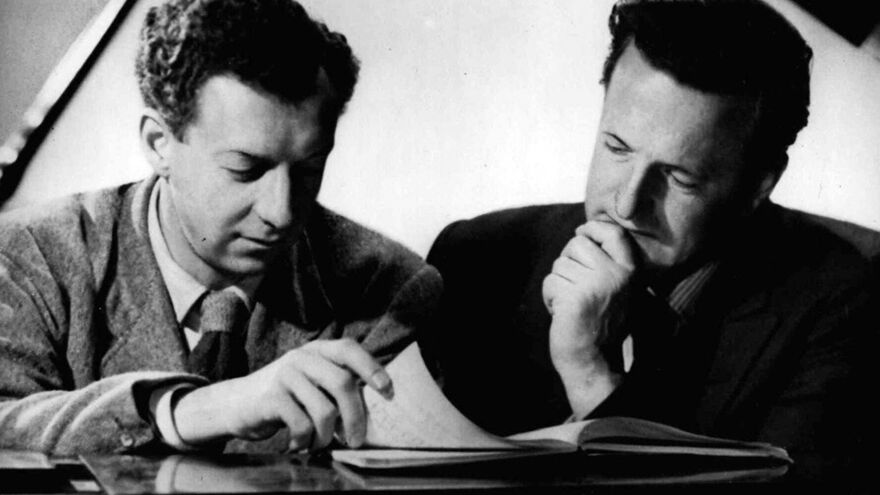Happy Pride! Since the 1969 Stonewall Uprising in Manhattan, June is recognized as a month-long celebration of LGBTQ pride, commemorating the contributions of lesbian, gay, bisexual, transgender, and queer culture and communities. Now’s the time of year where we celebrate love in all of its shapes and sizes… and what better way to celebrate than with music? Music is the food of love, as someone famous once said (did you know that I’m a big Shakespeare fan?).
I witnessed one of the truest instances of music as an expression of love when I was in college: I vividly remember watching my friend serenade his boyfriend during his senior recital. He opened the program with Benjamin Britten’s five Canticles, and dedicated the first one to his partner: “To my supporting elm,” he said, quoting the song’s text. Tears welled up in my eyes as he sang with such sincerity to the man he loved, who sat proudly in the front row with a bouquet of flowers in his lap.
For your listening pleasure, and in honor of Pride Month, here’s a playlist of songs written by queer composers and dedicated to the ones they loved:
Benjamin Britten - Canticles (1947 - 1975)
Britten wrote a LOT of vocal music in his lifetime, especially for his life partner, tenor Peter Pears. The Canticles were written specifically with Pears in mind. The text of Canticle I: My beloved is mine and I am his was taken from “A Divine Rapture” by Francis Quarles, a paraphrase of sections from the Song of Songs from the Old Testament. The “he” in the original text is meant to be in reference to God, but in Britten’s setting, it has a much more romantic resonance. Canticle I bravely expressed same-sex love at a time when it was illegal in England to do so.
Ethel Smyth - The March of the Women (1910)
Smyth composed The March of the Women to words by the actor, journalist, suffragist and feminist Cicely Hamilton. It quickly became the official anthem of the Women's Social and Political Union and, more widely, the anthem of the women's suffrage movement throughout the United Kingdom and around the world. Smyth dedicated the piece to movement leader Emmeline Pankhurst. She had fallen in love with Pankhurst, so the story goes, while teaching her how to aim and throw rocks through the windows of anti-suffragist households. The two were eventually arrested for this and placed in adjoining prison cells, where their relationship only grew closer. And it was from her cell in Holloway Prison where Smyth famously led 100 other suffragettes in the first performance of The March of Women, conducting them through her cell bars with a toothbrush.
Francis Poulenc - Concert champêtre (1928)
Francis Poulenc is considered one of the first openly gay composers. In his late twenties, he began his first serious relationship with the painter Richard Chanlaire. He wrote Concert champêtre for him, and inscribed the score with the text: “You have changed my life, you are the sunshine of my thirty years, a reason for living and for working.”
Poulenc - Mélancolie (1940)
After his romantic relationship with Chanlaire evolved into a life-long friendship, Poulenc began a relationship with driver Raymond Destouches that lasted through World War II and the Nazi occupation of France. During this period, Destouches narrowly avoided arrest and deportation because he was an openly bisexual man. Poulenc was also openly gay at this time, but was protected by his status as a celebrated composer. Mélancolie was written in response to the Nazi invasion of France and was dedicated to Destouches.
For the rest of Pride Month and beyond, remember to cherish the people you love — maybe you could even write them a love song?



